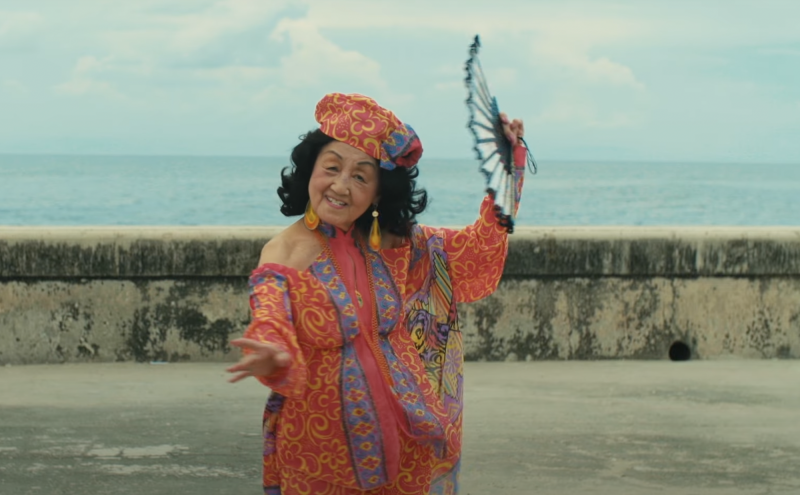In the 1940s, Coby Yee’s performances at San Francisco’s most famous Chinatown nightclub were positively scandalous. Yee and other young Asian American women on the stage at Forbidden City showed off modern dance moves, contemporary fashions and — most controversially — their legs. These now-legendary dancers not only helped squash outdated stereotypes about Asian women, they had a riot of a good time in the process and were a huge hit with audiences.
‘Chinatown Cha-Cha’ Is an Ode to Aging Unapologetically

It’s clear that in her youth, Yee was a free spirit — she had to be in order to work in the clubs in the first place. Now, a new documentary demonstrates that she retained her rebellious personality for the rest of her life.
Chinatown Cha-Cha finds Yee at age 92, performing what she refers to as her swan song: the final dance routines of her life, complete with risqué moves and signature coy expressions. In the film, Yee is an effervescent figure both on and offstage, brimming with spicy charisma and a no-nonsense attitude.
Accompanying Yee on her final journeys to perform in Beijing and Havana are the Grant Avenue Follies, San Francisco’s premier senior cabaret troupe, all of whom add color (and several spontaneous outbreaks of song) to the proceedings. But it’s Yee’s romantic relationship with her dance partner Stephen King — a man 20 years her junior — that carries probably the most fascinating dynamic of the film.
On stage, Yee and King perform George Strait’s 1998 hit “I Just Want to Dance With You” together. King sings adoringly while Yee slowly disrobes down to a leg-baring leotard. Offstage, the couple are playful with one another, often wearing matching outfits designed and sewn at home by Yee, while King creates collages of his love standing on mountaintops. Theirs is an odd coupling, but one that clearly works. At the time director Luka Yuanyuan Yang made Chinatown Cha-Cha, the lovebirds had been together for 20 years.
“Old age has been a great time for us,” King acknowledges at one point. “How unpredictable life is.”
That’s really the whole point of Chinatown Cha-Cha. The film isn’t just about staying active and unconventional into old age, it’s about refusing to give up what you love, whether or not other people think your behavior is appropriate. The energy level of every senior featured here is a testament to sticking with your own personal passions. Doing so is clearly a great way to stay young.
Chinatown Cha-Cha is not perfect. It would have benefited from a little more background about Yee’s life at Forbidden City — especially since she and her family owned and ran the club in its later years. The structure of the documentary is a little too loose, and doesn’t spend enough time documenting the Grant Avenue Follies’ history and live performances. (There are also three different kinds of fonts used on screen throughout, lending an unfinished feel to the film.)
That being said, the fact that Yee’s final performances and, it turns out, last months on Earth are captured in Chinatown Cha-Cha makes this a film worthy of attention. At one point, as Yee casually completes a game of solitaire on her desktop computer, King questions the nature of life and legacy.
“When you’re gone,” he ponders, “and all the people that knew you are gone, it will be like you never were.”
Thanks to Chinatown Cha-Cha, Yee’s legacy will be much harder to forget.
‘Chinatown Cha-Cha’ screens Friday, May 9 as part of CAAMFest at AMC Kabuki 3 in San Francisco; on Saturday, May 10, at Stanford University’s Oshman Hall in Palo Alto; and Sunday, May 11, at the Great Star Theater in San Francisco. A Q&A follows each screening. Details here.

